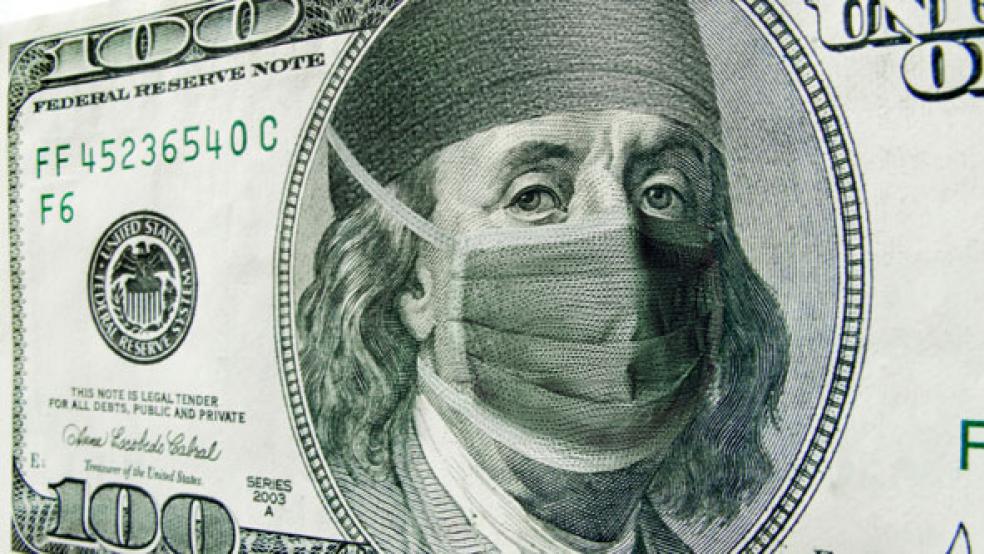In a concession to economic reality, Vice President Mike Pence on Sunday admitted that the tax plan proposed by the Trump administration last week would increase the federal deficit. But he insisted that the proposal, which economists say would deliver a windfall to the wealthy, would eventually pay for itself through increased economic growth.
In an appearance on Meet the Press, Pence was asked multiple times by host Chuck Todd how the administration planned to pay for a proposal that would slash personal and corporate tax rates with few offsetting measures to maintain federal revenue levels. Wouldn’t the plan increase the deficit? Todd asked.
Related: Trump Calls Schumer an Incompetent ‘Fool’ Just When Need Him the Most
“Well maybe in the short term,” Pence finally conceded. “But the truth is if we don't get this economy growing at three percent or more as the President believes we can, we're never gonna meet the obligations that we've made today.”
The vice president laid out the administration’s case this way:
“We have nearly a 20 trillion dollar debt -- doubled under the last administration,” he said. “It didn't just double because of excessive government spending, it doubled because of a struggling American economy. We just got the numbers, 1.6% - the strongest economy on Earth growing at less than two percent, and less than one percent in the first quarter. Look, all those statistics and talking with everyday Americans and job creators across this country attest to fact that American people are crying out for tax relief.
“We have one of the highest corporate tax rates in the world, the President's gonna drive to lower that to 15 percent, to make businesses large and small more competitive, and we're gonna lower tax rate to three marginal rates for every American unleash the bound up energy of the American economy.”
Related: Trump Still Has a Chance to Strike a Blow Against Special Interests
The trouble with the administration’s position, though, is that with a few exceptions economists across the ideological spectrum have concluded that the economic benefit of tax cuts does not offset their fiscal cost.
Economists are also very dubious when it comes to claims from the Trump White House that the economic growth rate can be pushed up above three percent per year, with or without tax cuts. The World Bank, for example, projects US growth rates to be below two percent for the next several years. With the economy near full employment and productivity growth unlikely to surge, the general assessment among economists is that growth above three percent is probably out of reach in the near term.
There are strong arguments that the administration’s deficit-swelling tax plan would have negative rather than positive effects on economic growth.
The federal deficit and national debt, already large and growing, would balloon further under the Trump plan. That would lead to increased government borrowing at a time when the Federal Reserve is in the early stages of a years-long project to bring interest rates back to historically normal levels after a decade of rock-bottom borrowing costs. More borrowing by the federal government would, therefore, happen at significantly higher interest rates, and by increasing the demand for credit, would simultaneously work to drive rates still higher.
Related: How the Government Saved $136 Billion in 5 Years By Cutting Waste
At the same time that Pence was on NBC insisting that the administration’s plan would be a good thing for the economy and would eventually work to push deficits down, President Trump was appearing in a taped segment on CBS's Face the Nation pledging not to touch one of the primary drivers of the federal deficit.
Medicare, the entitlement program that provides health insurance for seniors, is among the very largest expenses faced by the federal government, accounting for about 15 percent of total federal outlays. As the Baby Boom generation ages, the program’s costs are expected to rise sharply, and there is widespread agreement that addressing future deficits will require getting a handle on the program.
But in his interview with host John Dickerson, Trump foreclosed on the possibility of significant changes to the program outside of the rote promise to crack down on “waste, fraud, and abuse.”
“Okay, then let me more clear. I'm not going to touch it, because I said it,” Trump told Dickerson when asked to clarify his position on the program. “Now, waste, fraud and abuse, I'm going to touch. If there's something in Medicare that's been abused, I will touch that. There are certain things, as you know, that have been absolutely abused. There are certain provisions in Medicare that are horrible and abusive and there's been terrible things happening. So that kind of stuff, I will absolutely touch.”





